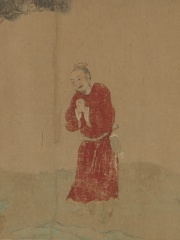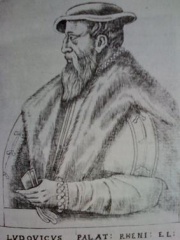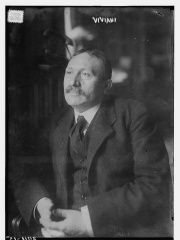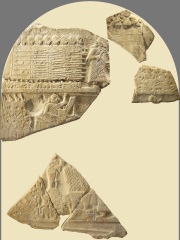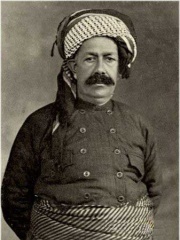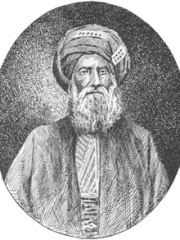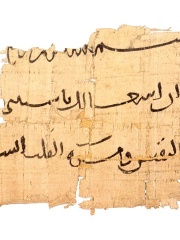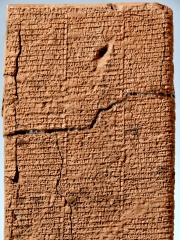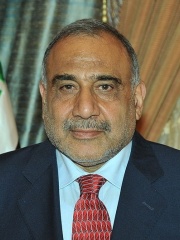Politician
Ninus
EN.WIKIPEDIA PAGE VIEWS (PV)

 Ninus
Ninus
Ninus (Greek: Νίνος), according to Greek historians writing in the Hellenistic period and later, was the founder of Nineveh (also called Νίνου πόλις "city of Ninus" in Greek), ancient capital of Assyria. What figure or figures he may have been based on is uncertain; an identification with Shamshi-Adad I, Shamshi-Adad V, and/or a conflation of the two has been suggested. Read more on Wikipedia
His biography is available in 25 different languages on Wikipedia (up from 22 in 2024). Ninus is the 6,727th most popular politician (down from 5,458th in 2024), the 177th most popular biography from Iraq (down from 148th in 2019) and the 117th most popular Iraqi Politician.
Memorability Metrics
Page views of Ninus by language
Among Politicians
Among politicians, Ninus ranks 6,727 out of 19,576. Before him are Princess Louise Caroline of Hesse-Kassel, Pierre Werner, Emperor Shizong of Liao, Lucius Aemilius Lepidus Paullus, Empress Masako, and Alexis Tsipras. After him are Shi Le, Yang Jia of Shang, Al-Muhtadee Billah, Perctarit, Louis VI, Elector Palatine, and René Viviani.
Most Popular Politicians in Wikipedia
Go to all RankingsPrincess Louise Caroline of Hesse-Kassel
1789 - 1867
HPI: 64.46
Rank: 6,723
Pierre Werner
1913 - 2002
HPI: 64.46
Rank: 6,724
Emperor Shizong of Liao
919 - 951
HPI: 64.46
Rank: 6,725
Lucius Aemilius Lepidus Paullus
100 BC - 13 BC
HPI: 64.46
Rank: 6,726
Empress Masako
1963 - Present
HPI: 64.46
Rank: 6,727
Alexis Tsipras
1974 - Present
HPI: 64.46
Rank: 6,728
Ninus
HPI: 64.46
Rank: 6,729
Shi Le
274 - 333
HPI: 64.46
Rank: 6,730
Yang Jia of Shang
1500 BC - 1402 BC
HPI: 64.46
Rank: 6,731
Al-Muhtadee Billah
1974 - Present
HPI: 64.46
Rank: 6,732
Perctarit
645 - 688
HPI: 64.46
Rank: 6,733
Louis VI, Elector Palatine
1539 - 1583
HPI: 64.46
Rank: 6,734
René Viviani
1862 - 1925
HPI: 64.45
Rank: 6,735
In Iraq
Among people born in Iraq, Ninus ranks 177 out of NaN. Before him are Eannatum (-2500), Mahmud Barzanji (1878), David Sassoon (1792), Seleucus of Seleucia (-190), Ibn Muqla (886), and Barzan Ibrahim al-Tikriti (1951). After him are Zubaidah bint Ja`far (766), Ignatius Zakka I Iwas (1931), Diogenes of Babylon (-240), Lugalbanda (null), Ibrahim al-Jaafari (1947), and Ayad Allawi (1944).
Others born in Iraq
Go to all RankingsEannatum
POLITICIAN
2500 BC - 2425 BC
HPI: 64.80
Rank: 171
Mahmud Barzanji
POLITICIAN
1878 - 1956
HPI: 64.75
Rank: 172
David Sassoon
SOCIAL ACTIVIST
1792 - 1864
HPI: 64.70
Rank: 173
Seleucus of Seleucia
ASTRONOMER
190 BC - 150 BC
HPI: 64.67
Rank: 174
Ibn Muqla
POLITICIAN
886 - 940
HPI: 64.56
Rank: 175
Barzan Ibrahim al-Tikriti
POLITICIAN
1951 - 2007
HPI: 64.53
Rank: 176
Ninus
POLITICIAN
HPI: 64.46
Rank: 177
Zubaidah bint Ja`far
POLITICIAN
766 - 831
HPI: 64.45
Rank: 178
Ignatius Zakka I Iwas
RELIGIOUS FIGURE
1931 - 2014
HPI: 64.37
Rank: 179
Diogenes of Babylon
PHILOSOPHER
240 BC - 150 BC
HPI: 64.30
Rank: 180
Lugalbanda
POLITICIAN
HPI: 64.27
Rank: 181
Ibrahim al-Jaafari
POLITICIAN
1947 - Present
HPI: 64.23
Rank: 182
Ayad Allawi
POLITICIAN
1944 - Present
HPI: 64.22
Rank: 183
Among Politicians In Iraq
Among politicians born in Iraq, Ninus ranks 117. Before him are Adil Abdul-Mahdi (1942), Muhammad Najib ar-Ruba'i (1904), Eannatum (-2500), Mahmud Barzanji (1878), Ibn Muqla (886), and Barzan Ibrahim al-Tikriti (1951). After him are Zubaidah bint Ja`far (766), Lugalbanda (null), Ibrahim al-Jaafari (1947), Ayad Allawi (1944), Abu Mahdi al-Muhandis (1954), and Al-Hakim I (1247).
Adil Abdul-Mahdi
1942 - Present
HPI: 64.96
Rank: 111
Muhammad Najib ar-Ruba'i
1904 - 1965
HPI: 64.82
Rank: 112
Eannatum
2500 BC - 2425 BC
HPI: 64.80
Rank: 113
Mahmud Barzanji
1878 - 1956
HPI: 64.75
Rank: 114
Ibn Muqla
886 - 940
HPI: 64.56
Rank: 115
Barzan Ibrahim al-Tikriti
1951 - 2007
HPI: 64.53
Rank: 116
Ninus
HPI: 64.46
Rank: 117
Zubaidah bint Ja`far
766 - 831
HPI: 64.45
Rank: 118
Lugalbanda
HPI: 64.27
Rank: 119
Ibrahim al-Jaafari
1947 - Present
HPI: 64.23
Rank: 120
Ayad Allawi
1944 - Present
HPI: 64.22
Rank: 121
Abu Mahdi al-Muhandis
1954 - 2020
HPI: 64.15
Rank: 122
Al-Hakim I
1247 - 1302
HPI: 64.12
Rank: 123






